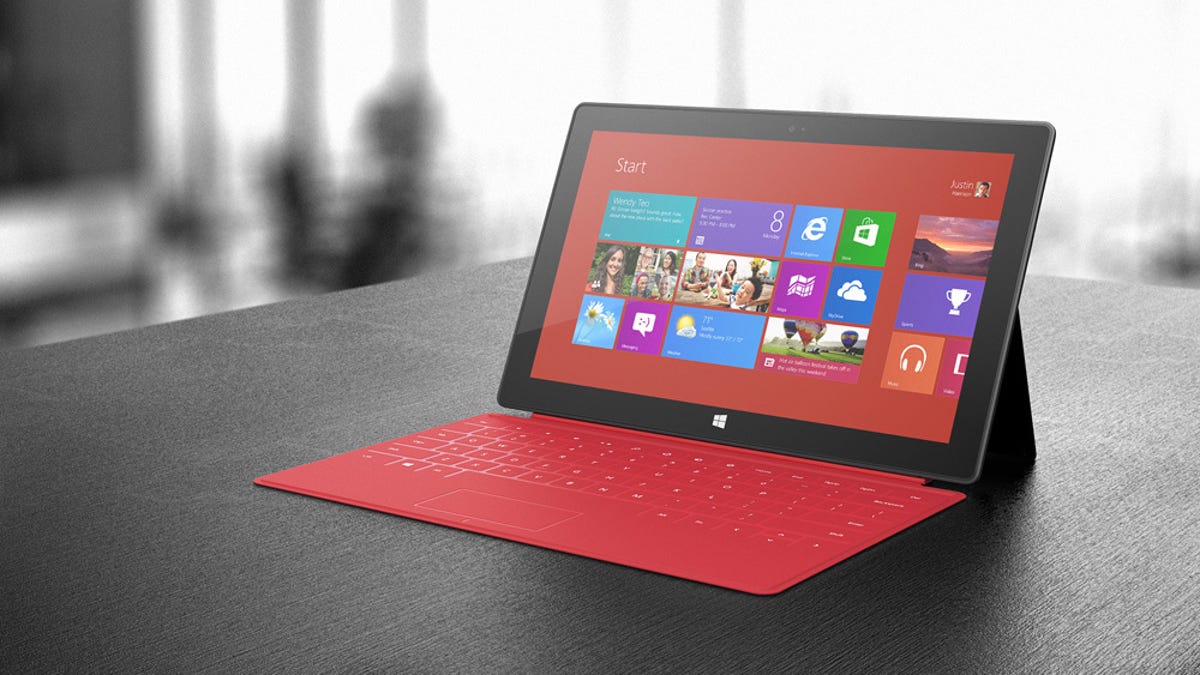Why Jakob Nielsen's Windows 8 critique is old-school thinking
<b>commentary </b> The usability expert branded Microsoft's new operating system "disappointing." But his approach would lead to the kind of incremental improvements that have dogged Microsoft for years.

Apple co-founder Steve Jobs was once asked what market research went into the creation of the iPad.
"None," Jobs replied, in one of his most celebrated quotes. "It's not the consumers' job to know what they want."
I was reminded of that when I read usability guru Jakob Nielsen's recent criticism of Windows 8. Having studied "12 experienced PC users" fiddling with the new operating system on both PCs and Microsoft's new Surface tablet, Nielsen found the usability "disappointing."
There is a litany of concerns, but the biggest seems to be that Windows 8 is too unfamiliar. He notes that with both the new touch interface on the Surface and the traditional Windows desktop, "(u)sers have to learn and remember where to go for which features." And he says that the lack of "pseudo-3D or lighting model to cast subtle shadows that indicate what's clickable" reduces the ability to discover applications and information.
I'll leave it to others to decide whether 12 experienced PC users is a large enough sample size to gain meaningful insight. The bigger question to me is whether Microsoft should pay too much heed to any users at all.
The problem with watching people try any product that's undergone a significant change is that they will struggle. It's human nature. We'll always be more comfortable with something that's familiar. Jobs understood that, which is why he put so little stock in market research. That's why the notion that users should be able to grasp the new Windows interface right away is a recipe for incrementalism.
"It's a very old-school approach to usability," said Tom Hobbs, the creative director at the Seattle design firm Teague and an interaction design specialist.
Microsoft, a company often tarred for its lack of innovation, wasn't shooting for incremental improvements with Windows 8. The software giant embraced its new tile-based user interface for Windows to leverage its operating system hegemony to compete in new world of tablet computing where Apple's iPad is dominant.
"For Microsoft to support incremental change around a new paradigm would be suicide," Hobbs said.
For its part, Microsoft said it conducted usability tests in more than 127 countries, refining the operating system to one where users can find the information most relevant to them. And in a recent video reported by longtime Microsoft watcher Paul Thurrott, Jensen Harris, director of program management for the Windows User Experience Team, acknowledged the need for a significant shift.
"Resting on familiar is the way to mediocrity," Harris said in an August presentation to user experience designers.
Nielsen told me he's not advocating modest product evolution. That has its own set of problems.
"Every time you do incremental change, you acquire crud," Nielsen said.
Former Sun Microsystems chief executive Scott McNealy famously labeled Windows as a "hairball" for all the code it amassed over the years in the name of modest improvement.
"At some point in time, you've got to make a break from the past," Nielsen said. "But you can't do it very often. That's why it's so important to make sure you get it right."
His research and analysis tells him that Microsoft didn't get it right this time, and that Microsoft should have put out one operating system for tablets and a separate one for PCs. Then again, Nielsen's research and analysis led him to pan the iPad's usability when it debuted two years ago, noting inconsistencies in the way different apps work. Of course, that didn't stop consumers from snapping up the device in eye-popping numbers.
None of this is to say that Microsoft has created the perfect operating system. Windows 8 has its flaws. Teague's Hobbs agrees with Nielsen's criticism of the potential for errors when using gestures with the tablet version of the operating system. And he thinks that the animation that announces new information, such as a news story in a specific app, can be overly distracting. Indeed, some analysts have already soured on Windows 8's prospects.
"I don't think they've got it all right by any sense," Hobbs said. "But I'd argue that Microsoft is doing some of the most interesting user interface work on the planet."
That got me thinking of another Jobs quote.
"The only problem with Microsoft is they just have no taste," he said in the 1996 PBS documentary, "Triumph of the Nerds." "They have absolutely no taste. And I don't mean that in a small way, I mean that in a big way, in the sense that they don't think of original ideas, and they don't bring much culture into their products."
People can differ on whether they think the new Windows 8 user interface is worthy. But, for a change, Microsoft seems to have a distinct point of view.

